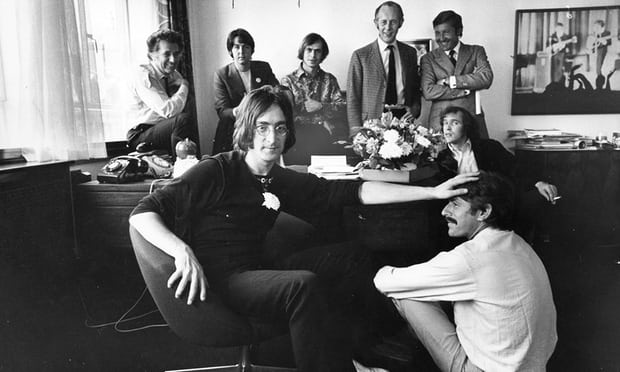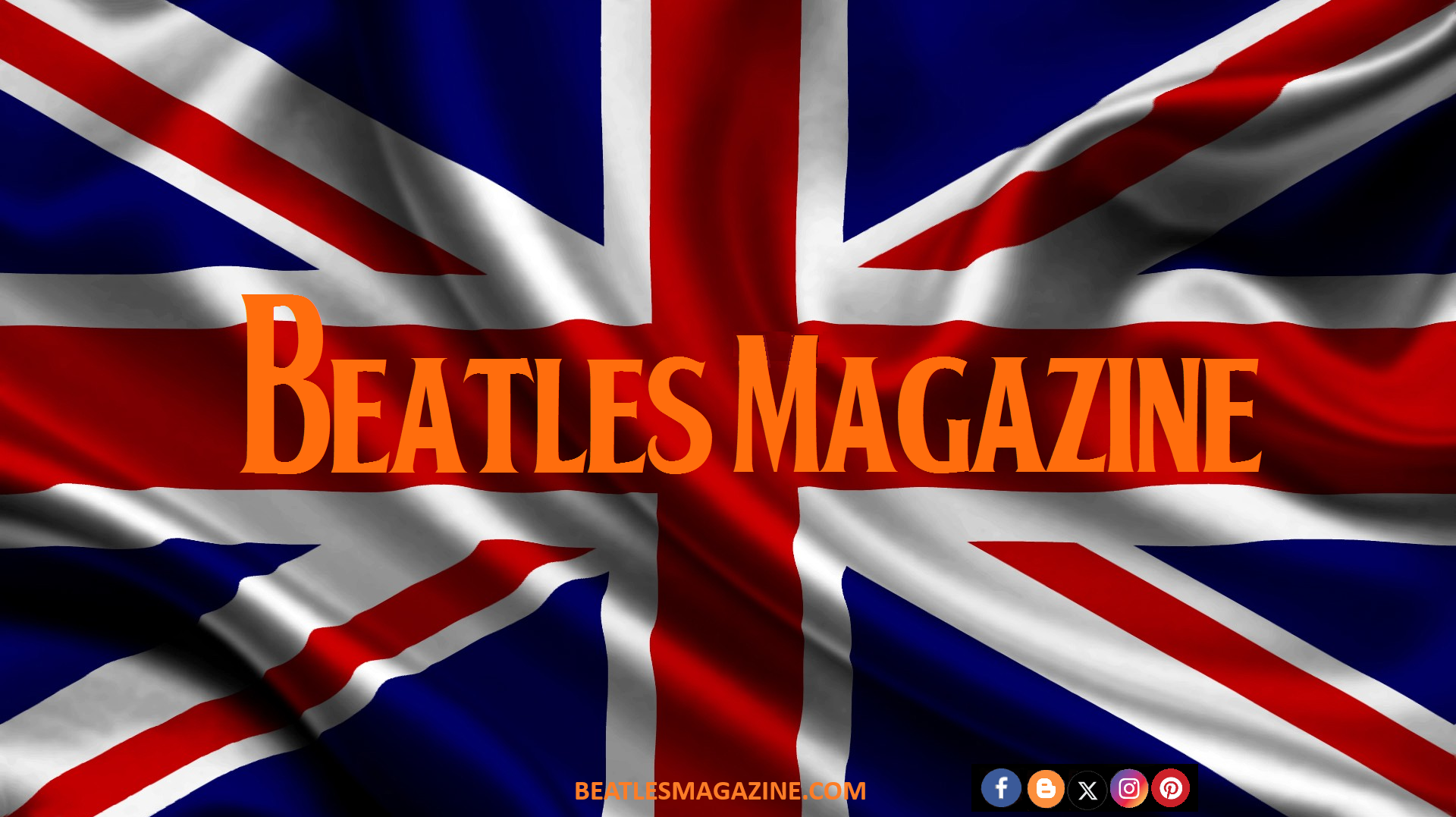Spring is here and Leeds play Chelsea tomorrow and Ringo and George and John and Paul are alive and well and full of hope. The world is still spinning and so are we and so are you. When the spinning stops – that’ll be the time to worry. Not before.” So ran the press release that announced the end of the Beatles on 11 April 1970, some time after they had actually broken up. It was written by Derek Taylor, a loquacious native of the Wirral who had served as their press officer in 1964, and again from 1968 until the end, when he headed the press department of Apple, their record company and doomed experiment in “western communism” .
Alongside their manager Brian Epstein and producer George Martin, Taylor – who was born in 1932 and died in 1997 – was one of the group’s inner circle whose comparatively advanced years and very English urbanity added to the sense that, however exotic their outward appearance, the Beatles kept one collective foot in a world of tea, biscuits and impeccable manners. He was working for the Daily Express when he and his wife Joan first saw the band, on a UK tour shared with Roy Orbison in 1963. “Though maybe at the ‘wrong’ end of that generation,” he later wrote, “we were nevertheless open thereafter to the possibilities of being truly young in heart.”
John Lennon honoured him with a mention in his pacifist anthem “Give Peace a Chance” (“Everybody’s talking ’bout … Derek Taylor, Norman Mailer, Allen Ginsberg, Hare Krishna”). In Philip Norman’s Beatles biography Shout! he is portrayed as a man in the heart of the storm who nonetheless managed to maintain a plentiful supply of decorum and basic humanity: “He was “amiable, sympathetic, polite to a degree which would ultimately seem miraculous.”
Unlike most of the hotshots who were then establishing what we now know as the global PR industry, Taylor had one big advantage: he could write. And in the late 60s and early 70s, he snatched time to record opinions that would not quite cohere into a memoir, but still evoke his dazzling working life and the era in which it happened. In his sparse, lyrical prose style, there are echoes of Joan Didion, another writer born before the so-called Love Generation, but who wrote about its rise and fall with authority.

As Time Goes By was first published in 1973, and has now been bolstered by an illuminating introduction written by the pop culture chronicler Jon Savage. Its narrative begins in 1964 and ends six years later. Along the way, Taylor relocates to Los Angeles (where he handled the media for the Byrds and the Beach Boys) before returning to participate in the Apple project. Of the endless procession of people who came to the press office, he writes: “No one left without something having been stuck into their mouth, be it tea, whisky, cigarette, joint or clenched fist.” Some waifs and strays stuck around: “Stocky McMullen was with us for about half a year, he sat mostly on top of a filing cabinet and drew fantasy pictures of penises eating each other.”
Inevitably, such fun would not last, and some of the best parts of the book are about the entry into the Beatles’ world of the notorious New York manager Allen Klein, brought in to stop Apple haemorrhaging money, in a move opposed by Paul McCartney but supported by his three colleagues – a schism that hastened the band’s demise. “Klein said he wouldn’t upset anything,” Taylor writes. “He would just rearrange it. So I wasn’t frightened because I thought that if it was going to be a rearrangement then that would leave me unmarked since I was always rearranging myself anyway. What I didn’t want to be was upset. Who needs upset? Then the firings began.”
There had already been auguries of these bad vibes, most notably in October 1968, when Lennon and Yoko Ono were busted for possession of marijuana by a gang of police officers overseen by Sgt Norman Pilcher, who was later jailed for corruption. The descriptions of these episodes are grimly fascinating: Lennon telling one of his closest confidants about what had happened with the bracing words “imagine your worst paranoia, because it’s here”; and McCartney cracking “the sort of jokes with which the best uncles seek to soften the horrors of the worst funeral”. Then “The evening papers arrived. ‘Lennon and Yoko’ was the main story. Not John any more. ‘Lennon’.”
The straight world was getting its revenge, but somehow Taylor maintained the hopeful, open disposition that defined everything he wrote. He had, after all, been at the heart of something so great that it was beyond imagination. “Did it all happen, all of it, or was it a dream?” he says at one point. “Like, was John once married to a girl from Hoylake, Cheshire? Did George actually sit in the Whisky A Go Go with the other three and Jayne Mansfield … throwing a whisky over Mamie Van Doren, or was it Coca-Cola? You must be joking. None of it ever happened.”
THE BOOK “AS TIME GOES BY” … HERE.
source:The Guardian

